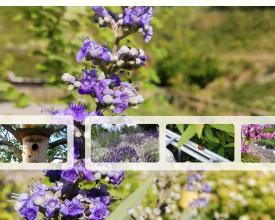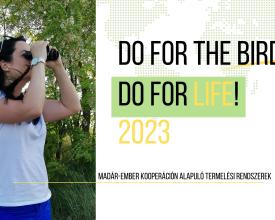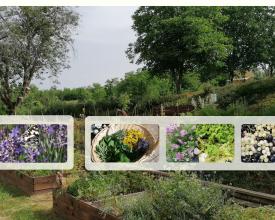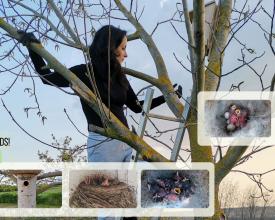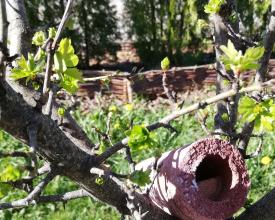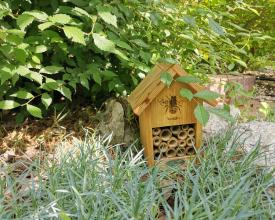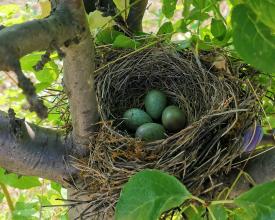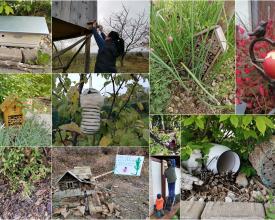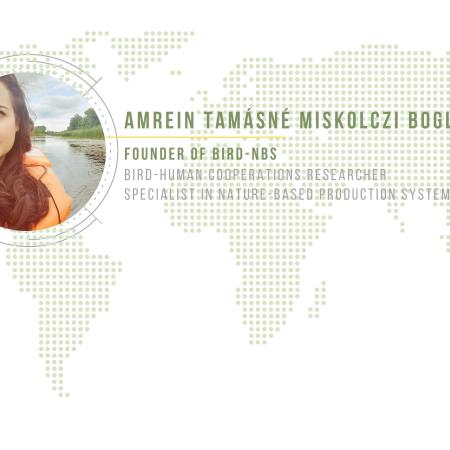
Bird-Human Cooperation System
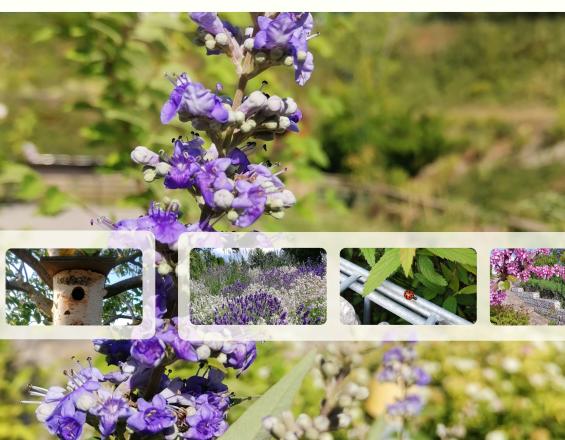
A mutually beneficial cooperation between agricultural production and wildlife!
In the production system based on bird-human cooperation, cooperation is one of the most important principles, which is not only about the protection of birds, but also about the intertwining of the entire ecosystem, the entire community of life, and even environmental effects and processes on the same level. In this new approach, we leave behind the mistaken assumption of modern man that the human race is above the system and has the duty or natural right to control it.
The production practice based on bird-human cooperation therefore means an ecological management based on a horizontal change of approach, the driving force of which is the continuous expansion of knowledge in the field of natural sciences - especially in the field of ecology and environmental interactions - and which connects this knowledge with the existing practice and determines the production goals for the with a responsible consideration of available options and resources.
Contexto
Défis à relever
The biggest challenge of agricultural production systems is how to ensure the satisfaction of human needs without exploiting our natural resources and destroying our environment. Modern agriculture is based on chemicals, fertilizers, intensive technologies and overproduction, thereby exploiting nature and raising serious obstacles for future generations.
On the other hand, the cooperative production practice shows how it is possible to cooperate with nature to ensure the supply of food for people - preserving the balance of the ecosystem and the health of the natural environment.
The challenge and at the same time the solution of the cooperation practice is the creation of a win-win relationship between people and their environment - which has been proven to be possible in recent years.
It is possible to create a nature-centered production practice that brings mutual benefits to both sides and realizes sustainable agriculture intertwined with nature conservation.
Ubicación
Procesar
Summary of the process
Changing bad agricultural and land use practices is essential on the way to a sustainable future, so our primary task is to change entrenched bad knowledge and practices. Knowledge transfer and social education are essential for this, which cannot be effective enough without professionals with interdisciplinary knowledge and partnerships. However, in addition to knowledge, practice and practical example are also essential: this proves to the population that the cooperation model can be operated successfully.
From the point of view of the Bird-Nest Box Station integrated into the landscape, the habitat and natural environment designed according to appropriate ecological aspects are crucial - which requires conscious planning and the help of specialists.
In addition to natural elements, we also need tools that make up for the shortcomings of the landscape that has been destroyed over the decades (for example, nesting sites due to the lack of dead trees are replaced with birdhouses).
This is how a science and practice, the perfect balance of the human and natural environment is created.
Impacts
The bird-human cooperation system approach and the related practical system can connect a wide range of nature-centered trends: agroecological solutions, regenerative agricultural objectives and sustainable food production systems. It can increase biodiversity, support the preservation of ecosystem services, can help restore soil functions and healthy wildlife, can help make agriculture more resilient to extreme weather events, and can also reduce farm expenses.
Effects from the side of agricultural systems: Chemical-free agriculture, conscious production processes, soil-friendly land use systems, effective crop protection, reduced workload and lower costs
Effects on the living world: ecosystem restoration, increase in biodiversity, healthy landscape use, protection of wild animals, habitat creation, restoration of balanced natural processes
Why the birds? Because the birds of our planet play an essential role in the functioning of life on earth: excellent biodiversity indicators, ecosystem engineers, key species, indispensable predators, weed regulators, pollinators and seed spreaders, the engines of the ecosystem.
A research published in 2021, based on a global meta-analysis, after analyzing and comparing 55 written works and 179 case studies, came to the conclusion that wild birds are a net benefit to agricultural production as a whole - they reduce crop damage and increase crop yields.
Beneficiaries
- Local people
- Local ecosystem and living communities
- Gardeners
- Farmers
-
Future generations
Sustainable Development Goals
Story

For the past ten years, I have built my own chemical-free farm in the middle of nowhere, as a seemingly impossible business, with the work of my two hands. I got to know the rules of living together with nature, I experienced how to create a balance between man and his environment, and I learned how to be a part of the extremely complicated - but all the more wonderful - system of our environment.
This fantastic journey led to the creation of the Bird-Human cooperation system. To the vision of a coexistence in which man and his environment can live side by side under the principle of mutual benefit, in which the practice of agriculture and food production is based on our already given resources: on the many useful living creatures that live around us, especially our birds, who help our future prosperity in many areas.
My goal is that the connections discovered during my work can contribute to the transformation of social thinking and action in the direction of a much more systemic, long-term perspective. I am trying to perfect the possibilities of a production system that is realized in practice (that is, feasible), which brings to the surface the possibilities of close coexistence and cooperation between man and the animal world.
I would like to reveal to the world the possibilities of a production system that builds on the long-term sustainable interactions of bird-human cooperation.
My goal is to present an innovative business and lifestyle approach that accepts singularity, and to describe the related practice based on the principle of mutual benefit, as well as a comprehensive analysis of its effects and results.
I believe that a balanced coexistence that benefits everyone is possible - and I trust that the point will come when there is a social demand for it.

